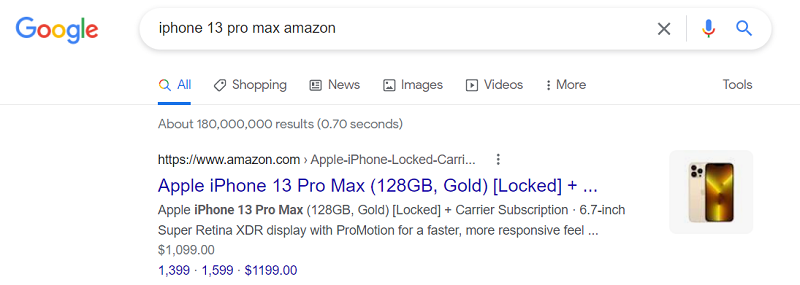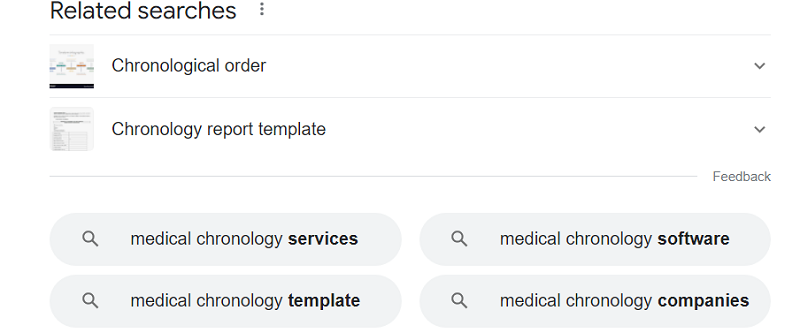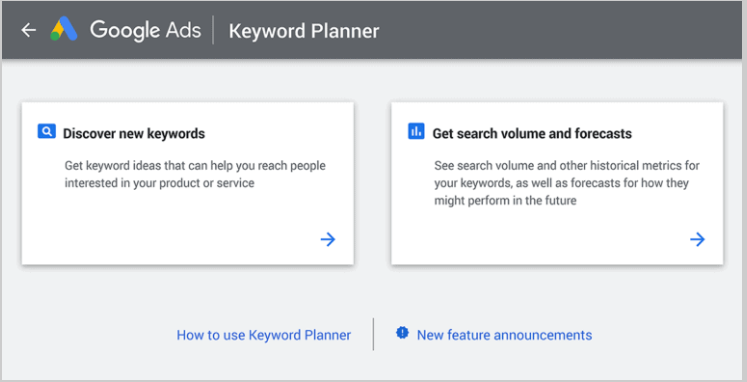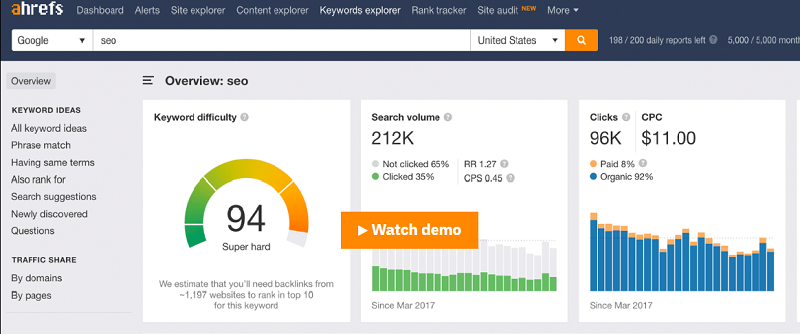A blog is like a freshly cooked cuisine with a variety of ingredients blended to enrich the depth of the flavor and the texture. There are far too many elements that influence the Search Engine Optimization of blogs. Following up on our previous post on blog SEO, today, we will focus on the magic bullet in the SEO of blogs: the keyword and the best tool for keyword research. Before that, it is needed to know the importance of blog keywords.
How Significant is a Keyword?
Keywords are the search terms or the search queries used by internet users to fetch the information they are looking for in a search engine. Also called search intent, it describes the purpose of an online search done by the user. Keywords could be words or phrases that describe a query in the best possible way. In response to the query term used by the user, the search engine serves the relevant data.
What are the Different Types of Keywords?
There are many types of keywords in different categories based on the length, the purpose it is used, the target information it aims at, etc. A few of them are listed below for your information.
Based on the purpose they serve, keywords are classified as
Informational Keywords
As the name suggests, informational keywords are all about gathering information on a particular topic, which the user does not have any intent to purchase. Informational keywords were used by people long before SEO and digital marketing got introduced into the scene. For instance, how to screenshot on mac is an informational keyword.

• These keywords are used to gather information on a product, service, or a topic.
• Informational keyword examples include search queries with “How,” “What,” “Why,” etc.
Navigational Keywords
For your easy understanding, when an internet user types in a company or brand name into a search engine, they use navigational keywords. The search intent leads them to a navigational search which may or may not turn out into a purchase. For instance, a navigational keyword may look like apple iPhone 13 pro max amazon.

• These keywords are used to navigate to a website or a webpage.
• Using a navigational keyword, the user need not have a clear intent to purchase.
• When it comes to purchasing decisions, navigational keywords are related to the “considering” stage.
• Navigational keywords examples include search queries with phrases like “Near me,” “directions to,” “prices,” “cost of,” etc. These keywords may be used along with the product/brand/service names.
Commercial Keywords
Commercial keywords are narrowed down to keywords that the user is on the hunt for a particular product or service. He is looking for the best offer that would fulfill his expectations. Commercial keywords are the keywords used in advertising commonly used closely associated with conversion. Commercial keywords are generic in nature, and they go as best kindle to buy.

• These keywords indicate the interest of the searcher around specific brands/products.
• Commercial keywords are generally high-traffic keywords.
• Commercial keywords examples include search queries with words like “Review,” “affordable,” “best,” etc.
Transactional Keywords
Once the user has finished the research on a product using all the three types of keywords listed above, transactional intent keywords may be used. These keywords indicate that the user has come to a purchase decision and searching for the best deal. An example like the apple iPhone pro max case discount may lead you to have your decision-making process.

These are the keywords used for the purchase or transactional purposes.
• Search volume for these keywords would be low, with a higher conversion rate.
• Transactional keywords indicate the chance of conversions.
• Transactional keywords examples include search queries with phrases like “Buy,” “discount,” “coupon,” etc.
Having understood the types of keywords based on the purpose they serve, let us move on to another criterion of keyword classification. Based on the number of words contained or the length, keywords can be classified as follows.
Long-Tail Keywords
Long-tail keywords are lengthy phrases used by people in different search engines. Studies report that the visitors who use long-tail keywords are more focused and, in business terms, are more likely to get converted. For example, a medical record review company is a long tail keyword.

• Long-tail keywords contain more than three words.
• Long-tail keywords are easier to rank.
• It would have low search volume but low organic competition.
• The possibility of ranking long-tail keywords is high.
Short-Tail Keywords
Short-Tail Keywords are crispy short phrases that are used by the majority of internet users. However, in the SEO aspect, short-tail keywords are very hard to rank and may take time to get good rankings in the SERP. Let me share with you a short tail keyword with just two words: medical chronology.

• Short-tail Keywords may contain one to two words.
• They are less specific and mostly generic in nature.
• Not being very specific, they would have a high search volume.
• The ranking possibility of short-tail keywords with heavy competition is lesser when compared to long-tail and mid-tail keywords.
Mid-Tail Keywords
As the name suggests, mid-tail keywords are phrases of medium length. They stay in between long-tail and short-tail keywords with a decent search volume. They are neither very generic nor specific in terms of usage. Have the overview on mid-tail keywords: medical chronology services.

• Mid-tail keywords contain two to three words in them.
• These keywords are more specific than short-tail keywords.
• They are less competitive and would rank easily.
What are Keyword Research Tools?
The keyword targeted is the most critical factor in driving traffic to any piece of content. So, what’s the secret sauce for picking the best keyword for your blog content? It’s as easy as it sounds: through keyword researching. Finding, evaluating, and using the phrases people use to search for information on the internet is called keyword research. While doing blog keyword research, put yourself in the shoes of your target audience and think about what search query they’ll type into the search engine to find content like yours.
If done correctly, systematic keyword research for blog posts can turn your keywords into blog ambassadors. You can also get relevant keyword suggestions and ideas to help you compete against similar content through keyword research.
How to do keyword research for blog?
Don’t worry about hearing it as research; you have umpteen keyword research tools available that would shoulder you in the process. An ideal SEO keyword research tool can help you.
• Obtain keyword ideas and identify how people are using the search query.
• Identify how trendy the search query is.
• Get an opinion on the competition the search query has.
Let’s have a look at some of the best keyword research tools for SEO. It’s up to you to discover the best tool for keyword research depending upon your sphere, your service, and the community you’re targeting. For your easy understanding, I am categorizing the tools for keyword research into free keyword research tools and paid keyword research tools.
Best Free SEO Tools for Bloggers
High-performing keywords research tools that are free to access would be the first choice of any content creator or blogger. Let’s find what is the best free keyword research tool for SEO that may help you uncover potential keywords and improve your SEO. I would like you to comprehend that free SEO research tools for keyword research do not have to provide you with the same level of functionality and customized output as paid tools. The below-mentioned are some of the best free keyword research tools used in SEO.
Google, the 23 years old search engine, has reshaped the entire planet, being the most used web-based search engine. The market share of Google during the last year was 91.94%. Google is one of the most basic yet effective tools for keyword research in SEO. When it comes to keyword research, it’s all about reading the ordinary man’s thoughts and how he uses the internet. In this regard, we can claim that the Google keyword research tool will provide you with a plethora of keyword suggestions.

Google’s autocompleting feature is a one-of-a-kind and user-friendly feature that allows you to produce an almost infinite number of keyword suggestions. When you search for any topic in the world, Google provides you with the “People also ask” option, along with a wealth of information. That’s where you’ll get ideas on how people try to find similar content on Google. You can find “Related Searches” at the bottom of every Google page, which gives you an understanding of the terms related to the content you’re hunting for.
Google Keyword Planner
Another free keyword research tool that can be utilized with simply a Google Ads account is Google Keyword Planner. It is possible to get many keyword ideas from a search query or a website using Google Keyword Planner. The keyword’s average monthly searches, amount of competition, and top-of-page bids (high and low prices) for the keywords can all be found with this tool.

Using Google Keyword Planner, you can
• Obtain suggestions for keywords that match your product/service.
• Fine-tune new keywords.
• Filter the keywords based on location or category.
• Find keywords for search campaigns.
• Find the monthly searches for each of your keywords.
• Obtain click and cost performance forecasts for your keyword lists.
Google Trends
Another best free keyword research tool for bloggers is Google Trends, which determines the popularity or interest of a given keyword based on geography or country. The tool displays the graphical representation of a keyword’s interest.

Besides evaluating the complexity and amount of searches a search query receives, it is also essential to see if the keyword is popular in the target community or locality. Google Trends assists content authors in determining whether or not a keyword is popular so that they can easily rank in the SERP. The statistics of popularity or trend we get from Google trends should not be compared to the search volume of a keyword you see in other keyword research tools.
You can use Google Trends to assess the trend of a keyword over a month or the entire year. This can assist you in determining when a certain keyword will have the most significant impact on users and when the best moment is to publish your content. However, the limitation is that you may not always find data on all the search queries you investigate in Google Trends.
Google Search Console (GSC)
Google introduced Search Console about 15 years ago, with the name “Webmaster Tools.” Redesigned in 2018 and again in 2021, it has become the perfect fit for any website with its exceptional Core Web Vital data.

Google Search Console is one of the best user-friendly keyword research tools.
• To get data on the search queries used by your target audience.
• To identify the keywords that your content already ranks for.
• To determine the scope of the keywords that can be added to boost the traffic of your web pages.
• To identify potential long-tail keywords such as question-based searches.
• To identify unexpected keywords for which the webpage ranks.
• Queries” listed in GSC directly reflect the terms used by the users, and by using those terms, the search engine rankings will undoubtedly improve, increasing traffic.
The highlight of this tool for keyword research is that it serves as an all-inclusive tool for SEO optimization to manage your website. It provides point-blank data on the number of clicks and impressions your webpages receive and errors in website crawling and also helps in indexing your webpages in Google.
Paid Keyword Research Tools
You’ve probably realized how important keyword research is for increasing blog traffic. You may always look for premium keyword research platforms that provide additional insights to nurture your website visibility and organic traffic. The following are the most popular paid keyword research platforms that can give you the best in keyword research.
Ubersuggest
Without Neil Patel and Ubersuggest, the story of SEO would be incomplete. Ubersuggest is the best keyword research tool for SEO that works integrated with Google Analytics and will be the best fit for individual purposes. The tool can be used as a free keyword research tool that offers three free daily searches for the best keyword analysis. The subscription edition of this platform gives you access to various tools that will help you maximize the potential of your web pages.

Ubersuggest provides information on a keyword’s monthly search traffic, average Cost Per Click (CPC), Pay Per Click (PPC) competition, and SEO competition to help you pick the best one for your content. You may also see your competitors’ top-ranking keywords and content ideas to help you produce competing content for improved SERP rankings.
Even though Ubersuggest does not provide statistics on keywords that fall into certain niches, it can assist you with the following exceptional characteristics.
• Data on high-performing keywords based on location.
• Information on new keyword opportunities that can boost the organic traffic of your content.
• Data on the upcoming trend of your keywords.
• Customized notifications to improve your SEO.
• Clear user interface.
• Wide range of keyword suggestions by comparison, question, and preposition variations.
• Rank tracking feature to track the ranking of your keywords.
• Competitor analysis.
• Features to explore on backlinking.
• Site auditing features for better website performance.
Semrush
Semrush is a keyword research tool that can offer a wide range of services for organizational purposes. The Semrush toolkit is again a paid keyword research tool that offers three important features keyword gap, keyword overview, and the keyword magic tool. With certain limited features like 10 queries per day in daily competitor or keyword research and auditing 100 pages of your website, it can also be used as a free keyword research tool.

When you go ahead with a paid subscription, Semrush offers you a wide range of services in competitor research, keyword research, link building, website auditing, local listings, etc. Along with keyword research, Semrush provides a user-friendly domain analysis feature to enhance your website visibility. Not just the data on organic search, it loads you with PPC data too. Semrush also offers a 7-day free trial option for the users like that Ubersuggest.
Semrush, like Ubersuggest, can be used for
• Finding the potential keywords and specific data on search volume, keyword difficulty, Cost Per Click value, and trend.
• Tracking the keywords your website ranks for.
• Identify the estimated traffic, traffic cost, and branded and non-branded traffic of your website.
• Tracking the competitors and their top-ranking keywords.
• Unleashing backlinking opportunities.
• Keyword gap analysis.
Moz
Moz is another website keyword tracker tool when hunting for a tool to keep track of our keywords, web presence, backlinks, and overall onsite and offsite SEO strategies. Moz blog keyword research tool can help you monitor trends in your keyword rankings, determine which keywords you should target, do competitive analysis on competitors’ websites, develop backlinks, etc. Moz also provides options to use limited features for free and extended features with a paid subscription.

Users can use Moz Pro to see how search engines such as Google, Bing, and Yahoo display and rank their websites, web pages, and content for specified keywords. Moz provides the user a detailed report on the domain authority, linking domains, inbound links, and spam score. It allows the user to keep track of their competitors’ keyword rankings. It helps to
• Evaluate and pick out keywords by the search volume.
• Generate and save keywords as individual lists.
• Predict and forecast the metrics of potential keywords.
• Identify keyword opportunities with plenty of suggestions.
• Track the ranking status through the rank tracking tool feature.
• Features for Website crawling and on-page optimization.
• Customized reports for improvisation.
Ahrefs
Ahrefs blog keyword research is another excellent option when you are in search of the best tools for keyword research. The tool provides different plans for the users starting from a monthly price of $99. Ahrefs is a huge database with more than 8 billion queries open for its users. The tool offers a wide range of services not just in keyword research but also in site audit, SEO metrics, competitor research, backlink analysis, etc.

Ahrefs provides the users with the following options in keyword research.
• Ahrefs helps the users to gather keyword ideas from different search engines other than Google. The users can obtain keyword ideas from search engines like YouTube, Amazon, Bing, Yahoo, Baidu, Yandex, etc.
• The Keyword research tool supports keyword research, supporting around 171 countries across the world. This option helps you to come up with location-targeted keywords and content.
• It indicates the estimated number of clicks for your keywords through the “Clicks” Metric option.
• Ahrefs provides data on the SERP overview & positions history of the ranking pages.
• It provides accurate data on elements like keyword difficulty, search volume, CPC, and global volume of a keyword.
• Phrase match is an option of Ahrefs that helps the user to identify other phrases that contain the keyword of interest.
• Under “having same terms”, it also provides data on other keywords that contain the terms in your keyword of interest.
• Ahrefs also provides an autocomplete facility with the option called “search suggestions”.
• Keywords that have been added recently to the tool database would be displayed separately under the category “newly discovered”.
• A keyword list is another Ahrefs option that helps the user to categorize and save keywords for future reference.
In the past decade, the trends in SEO and search engine algorithms have changed dramatically. Though SEO experts have differing opinions on keyword research and usage, keywords are always considered the first and foremost aspect that drives organic traffic to any blog content. The magic is all about understanding what your audience is searching for and delivering the right content with keyword optimization. With all the aforementioned tools, Ubersuggest is commercially viable and an affordable keyword research tool among all.
After reading this blog, I hope that you better understand the tips for keyword research, how to use keyword research tools and what is the best tool for keyword research. I want to add the disclaimer that this blog does not rate or underrate any keyword research tool, instead of attempting to assist you in finding the best keyword tool for bloggers that suits your content and niche. Remember that no traffic estimate or keyword research tool is flawless or 100 percent correct. It all comes down to picking the best keywords and the best tool for keyword research that suits your needs and creating signature content.
Follow us on Pinterest for more updates.

